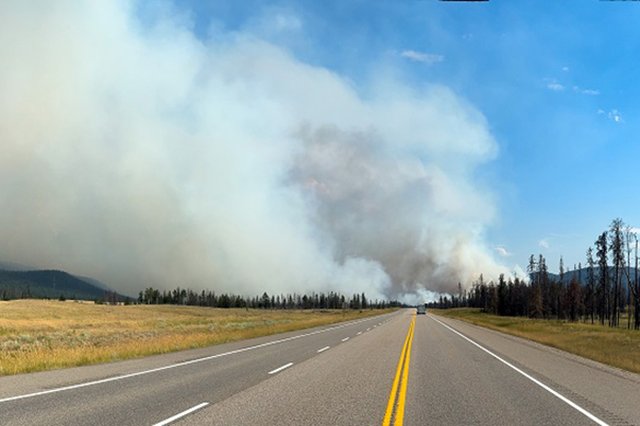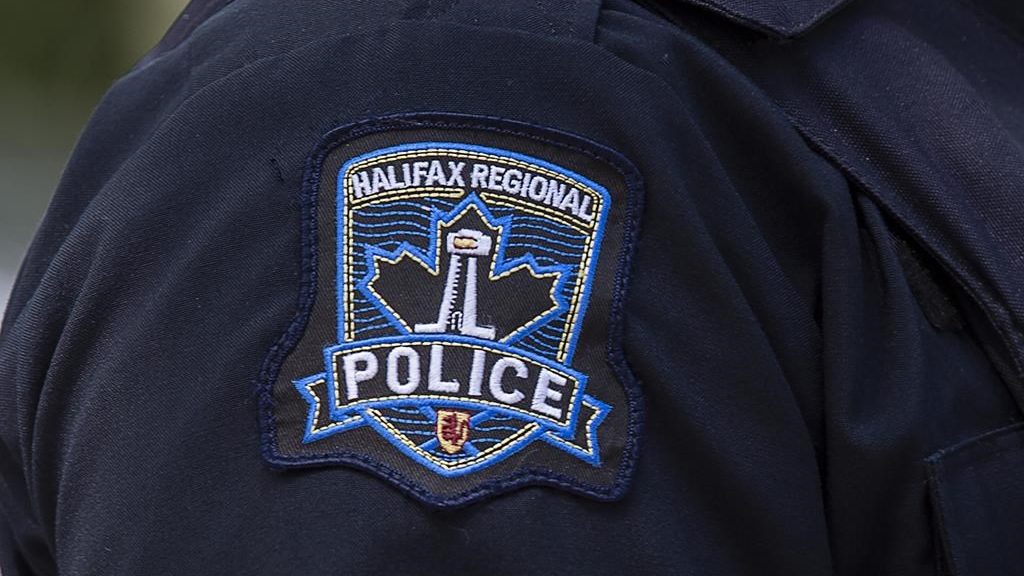Batten down the hatches, Fiona arrives today
Posted Sep 23, 2022 04:31:00 PM.
Nova Scotians have spent all week preparing, and now it's almost time to hunker down.
An emergency alert sent out just after 11 a.m. Friday warns of damaging winds, heavy rain and dangerous storm surge.
“Stay indoors,” the alert stated. “Avoid the coastline and rivers.”
We're also being asked to charge our devices and have enough supplies — like food, water and medications — to be self-sufficient for at least 72-hours.
Halifax is expected to start feeling Fiona's impacts around dinner time, with the height of the storm coming overnight and into early Saturday.
Hurricane, rain and wind warnings are all in effect for the HRM.
As of Friday morning, the current Category 3 storm is still about 1,100 km away from Halifax, but the Canadian Hurricane Centre's Ian Hubbard said she's starting to pick up speed.
“By the time the centre of the system approaches land, we're expecting it to have undergone its extra tropical transition and become a post-tropical storm … but it's still going to have all those serious winds and heavy rain,” the meteorologist told CityNews Halifax.
“Even though it's not going to be called a hurricane by then, we have to play close attention to this.”
Fiona is being described as a potentially “significant and historical weather event” for our province.
Halifax Mayor Mike Savage has asked those living near the coastline to be prepared to evacuate on short notice, if needed.
Four evacuation centres in HRM will open at 8 p.m. for those that want a safe place to ride out the storm.
- Canada Games Centre, 26 Thomas Raddall Drive, Halifax
- Acadia Centre, 636 Sackville Drive, Lower Sackville
- St Margaret’s Centre, 12 Westwood Boulevard, Upper Tantallon
- Musquodoboit Harbour Community Centre, 7900 Highway 7, Musquodoboit Harbour
The rain we're seeing this morning is not from Fiona. It's courtesy of a trough that is expected to merge with the powerful system.
“The main area of heavy rain from Fiona is going to arrive in Halifax this evening, and that's going to push right through the overnight period before it starts to ease up in the morning,” Hubbard stated.
Forecasters say 100 to 120 mm could fall in HRM, which could be “intense and torrential.”
Environment Canada warns that could lead to hazardous driving conditions, flooded basements, elevated river levels, road shoulder erosion and washouts, road closures, and localized flooding, especially in poor drainage areas.
Winds will pick up throughout the day. In Halifax, gusts are expected to be about 70 km/h by this evening, and grow stronger as the night progresses.
“That's when we're going to get those gusts to 100 [km/h] and maybe even as much as 120 over some more exposed areas. Those winds will continue overnight as well before they start to diminish tomorrow morning.”
Here is a look at the estimated arrival times for Tropical Storm (63 km/h) and Hurricane (118 km/h) force winds for #Fiona. #nsstorm
Check your forecasts and the alerts for your area for more specific details.
Forecasts: https://t.co/Ch7wH3EGBI
Alerts: https://t.co/oohzE5Mwiy pic.twitter.com/X5zlS2qd0p— ECCC Weather Nova Scotia (@ECCCWeatherNS) September 23, 2022
That is expected to cause prolonged power outages and create hazardous driving conditions, especially for high sided vehicles.
And as bad as it will be for us in Halifax, conditions are expected to be even worse in the eastern mainland and into Cape Breton, where the centre of the storm is expected to make landfall.
“They'll see the strongest winds from this, as well as the most amount of rain,” Hubbard stated,
Gusts in those parts of the province could reach 150 km/h over exposed areas, and they could see rainfall totals of 150 mm, or even higher in some spots.
Hubbard said, with these conditions, it's not an overstatement to describe Fiona as potentially historical.
“You don't see this very much, if at all, in our part of the world,” he stated.
“This storm itself is so powerful, a very low pressure system. Another thing we don't see to this degree with our hurricanes or even our wintertime storms.”
Meanwhile, the storm lead for Nova Scotia Power says his staff are preparing for a Dorian-level event.
“As of right now, we do have over 800 people in the field right now getting ready to restore power,” Matt Drover said at a media briefing Friday afternoon, “and hundreds more behind the scenes coordinating that effort.”
“In addition to that, we have reached out to our partners in Ontario, Quebec, all of Atlantic Canada and Maine. There are other contractors available if we need do need them as well.”
He said safety of those crews will be a top priority.
“When then the winds get above 80 [km/h], it will be buckets down. We can still get out and do assessments of what the damage may be, but we won't actually be able to get buckets up into the air until the winds get below 80,” he explained.
Halifax Transit will be wrapping up service earlier than normal on Friday, with bus, ferry and Access-A-Bus service suspended from 8:30 p.m. until further notice.
The MacKay Bridge will shut down at 9 p.m. Friday. The Macdonald Bridge is also now closed.
Nova Scotians are being asked to avoid unnecessary travel.
You can find a full list of closures and cancellations here.
You'll be able to listen to live, local coverage of the storm starting at 6 a.m. Saturday on CityNews 95.7.








